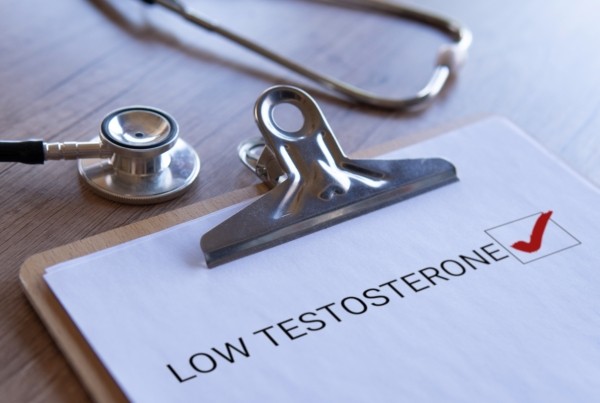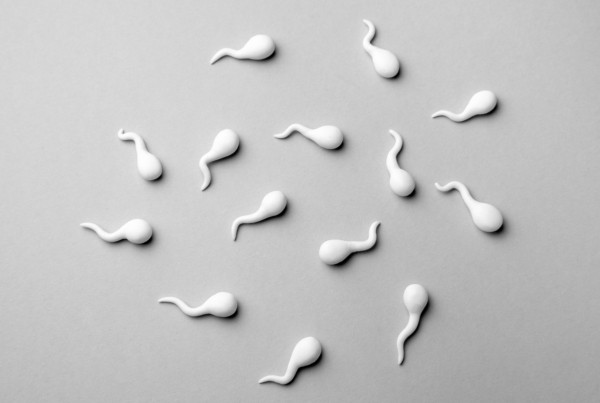What do we need to know about Male Infertility? 10 Questions with Dr. Kenan Omurtag.
We read about it daily – Spermageddon is upon us. Male infertility is on the rise, as sperm counts are dropping globally. Ibuprofen is killing our sperm. We have an unhealthy lifestyle and our environment is toxic. Yet there’s so much misinformation out there, it can be difficult to really know what to believe. So, what is fact and what is speculation? To find out, we went directly to the expert, Dr. Kenan Omurtag.
What is the occurrence of infertility?
Approximately 12 percent of men aged 15 to 44 are infertile. If you look at couples entering a fertility center, 20 percent will have male-factor infertility only, and 27 percent will have BOTH a male and a female issue.
What causes male infertility?
In general, there are four main categories of male infertility:
• In 60 to 80 percent of cases, there is a defect in sperm production. An infection or exposure to something toxic in the environment can impact sperm production. Also, a genetic condition, such as Klinefelter’s syndrome, or a functional issue, such as cryptorchidism (failure of tests to descend) or varicocele, can be the cause.
• In 10 to 20 percent of cases, the cause is unexplained. These men generally have normal sperm, but they have never achieved a pregnancy with a female partner.
• In 2.5 percent of cases, the cause of male infertility is endocrine or systemic disorders. In these cases, the brain’s ability to communicate with the testicles impacts sperm production. Disorders such as these can be the result of head trauma or brain tumors.
• In rare cases, the sperm doesn’t move, for some reason, such as in Kartagner’s syndrome.
What is “low-motile sperm count?”
If the number of moving sperm found in your sperm during testing is below the reference cut-off, you may have a LOW-MOTILE SPERM COUNT. Motile sperm count is a test that combines both the concentration (# of sperm) and motility (percentage of moving sperm) of the sperm. In normal intercourse, it takes moving sperm in high numbers to reach an egg. If this value is LOW, it is a good indication you should be more thoroughly tested.
Can men with a low-motile sperm count still conceive naturally?
Yes, they can but, in normal intercourse, getting pregnant is somewhat a numbers game. The more moving sperm you are producing, the more likely you are to get pregnant naturally, provided your partner is also fertile and you don’t have unexplained infertility.
Is it true that lifestyle can affect sperm?
Yes…
• Caffeine in high, more than 300 mg per day amounts (1 cup of coffee has ~ 95 mg) is found to be detrimental to sperm motility.
• Marijuana and narcotics will impact the brain’s ability to communication with the testes, so sperm production will be affected.
• Testosterone use does not make you more fertile. In fact, it will stop the brain’s communication with the testes completely. LOW T is a big issue in the media right now, and testosterone is being prescribed more and more. If you’re trying to get pregnant, be sure to let you doctor know, if you are taking testosterone.
• Alcohol consumption: One study of 1200 Danish men showed even five alcoholic drinks per week impacts sperm.
• Foods rich in lean protein, low in fat, high in vitamin C and Zinc are good for sperm production.
Can you still conceive if there is no sperm in your ejaculate?
Yes. If you are not producing sperm in your ejaculate, and you are trying to conceive, there are surgical options to retrieve sperm directly from the testicles or epididymis, such as TESE or MESA. The sperm is then used for IVF-ICSI to achieve pregnancy.
Is it true that wearing tight underwear/trousers is bad for your sperm?
Testes need a cooler environment and that’s why they reside on the outside of your body. It is a known fact that heat can impact the functioning of the testes. However, the assumption that tight-fitting underwear (which might raise the scrotal temp 1° C) causes male infertility is not yet proven. Caution is in order concerning long and frequent soaks in a hot tub – this could cause a temporary reduction in sperm production.
How can you increase your sperm motility?
A Google search on this topic will leave you completely confused about this. I advise my patients to take a multivitamin, extra vitamin C (500 mg), stop alcohol, caffeine and smoking, and monitor your improvement using a home sperm test kit such as YO with their YO SCORE.
How long should you try to conceive naturally before going to see a doctor?
This is a twofold answer. If you have been trying to get pregnant unsuccessfully for 6 months or more, start by testing the guy with a home sperm test kit, just to see. The other part of the equation is the woman and here are some guidelines:
• If she is under 35 years of age and you’ve been trying to conceive with unprotected intercourse for 12 months without success, she should see a fertility specialist for a workup and treatment; 85 percent of couples SHOULD HAVE CONCEIVED at this point.
• If she is older than35 and has not achieved a pregnancy within 6 months of unprotected intercourse, she should see fertility specialist.
• If she is under 35 AND has irregular periods, a history of endometriosis, tubal disease, fibroids or if there is a risk of male factor or an abnormal home sperm test, she should be seen within 6 months, or sooner, if she is not pregnant.
The thought of not have a child is overwhelming to couples. What do you advise to reduce the stress and pain?
There is no way to avoid the emotional rollercoaster of infertility testing and intervention, especially if you need assistance. I’ve found the following advice to be helpful for patients when talking with them:
• Support each other in an open and thoughtful manner and speak with close friends or family who are willing to share their infertility experience. This kind of support and guidance can be very helpful, especially because you can feel very isolated during this process.
• Some of my patients have found that acupuncture or reproductive counseling is helpful to relax and advise them about the process.
• Take action. Make use of fertility ”tools” on the market that involve you in the process to optimize, time and monitor your fertility. For women, ovulation prediction kits are a good choice (Clear Blue). For men, check your sperm count/motility and monitor improvements you see with lifestyle changes with the YO Home Sperm test (yospermtest.com). These proactive steps can help reduce some of the anxiety associated with the process and can move couples to seek treatment faster if something is wrong. Since there are fertility windows and women have a biological ticking clock, time is precious, and success may hinge on early diagnosis and treatment of a problem, whether it is male or female-based.







